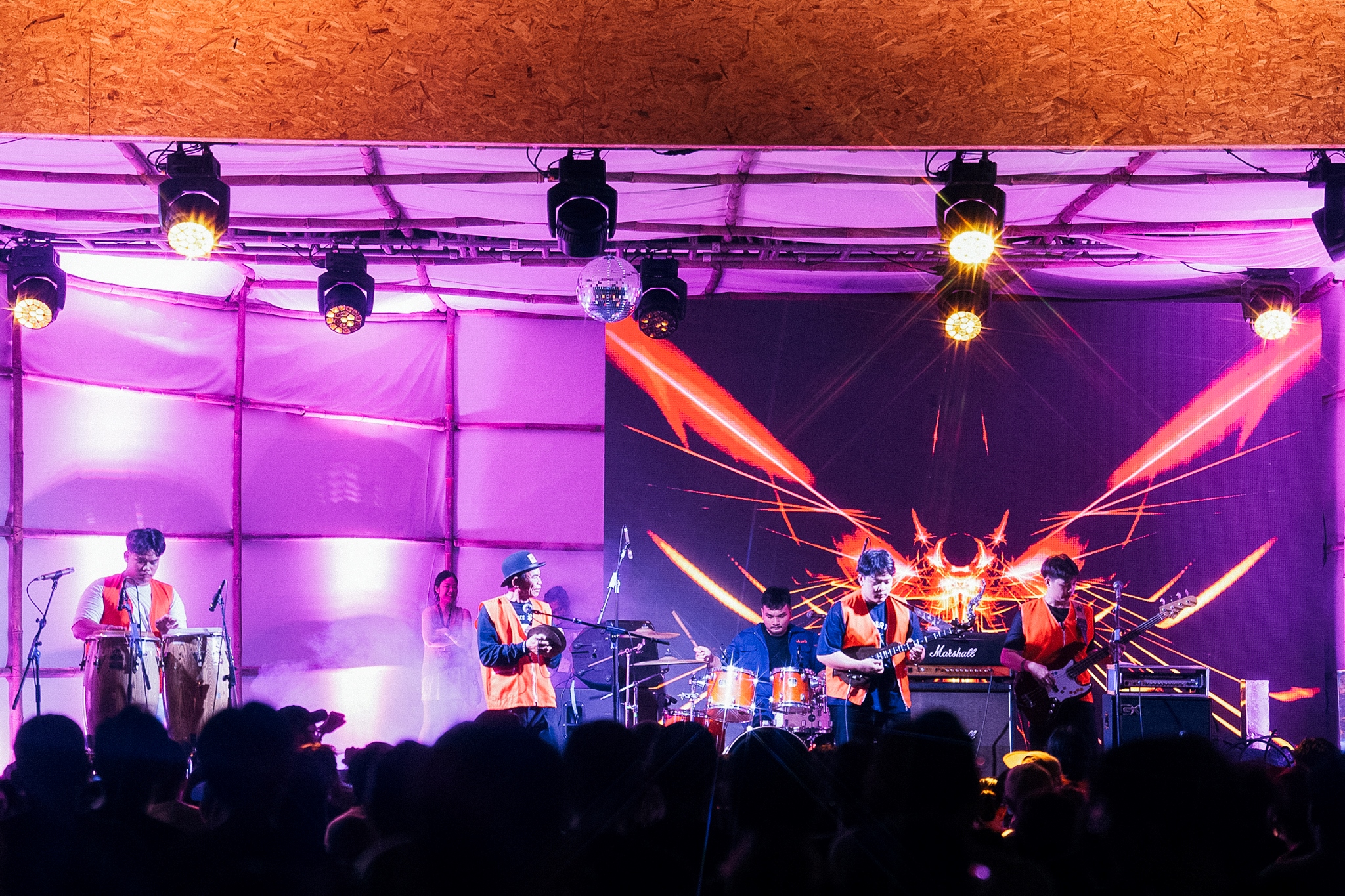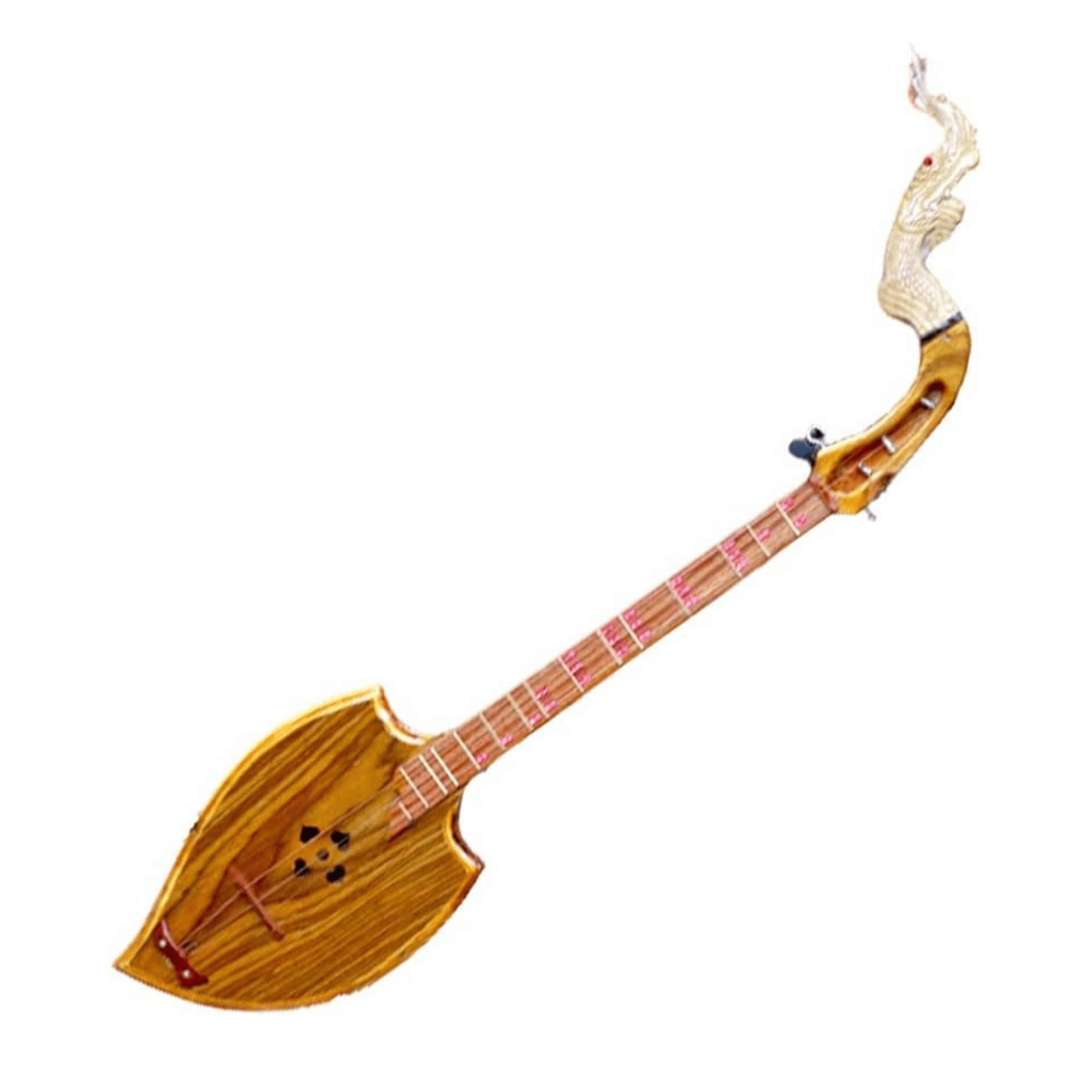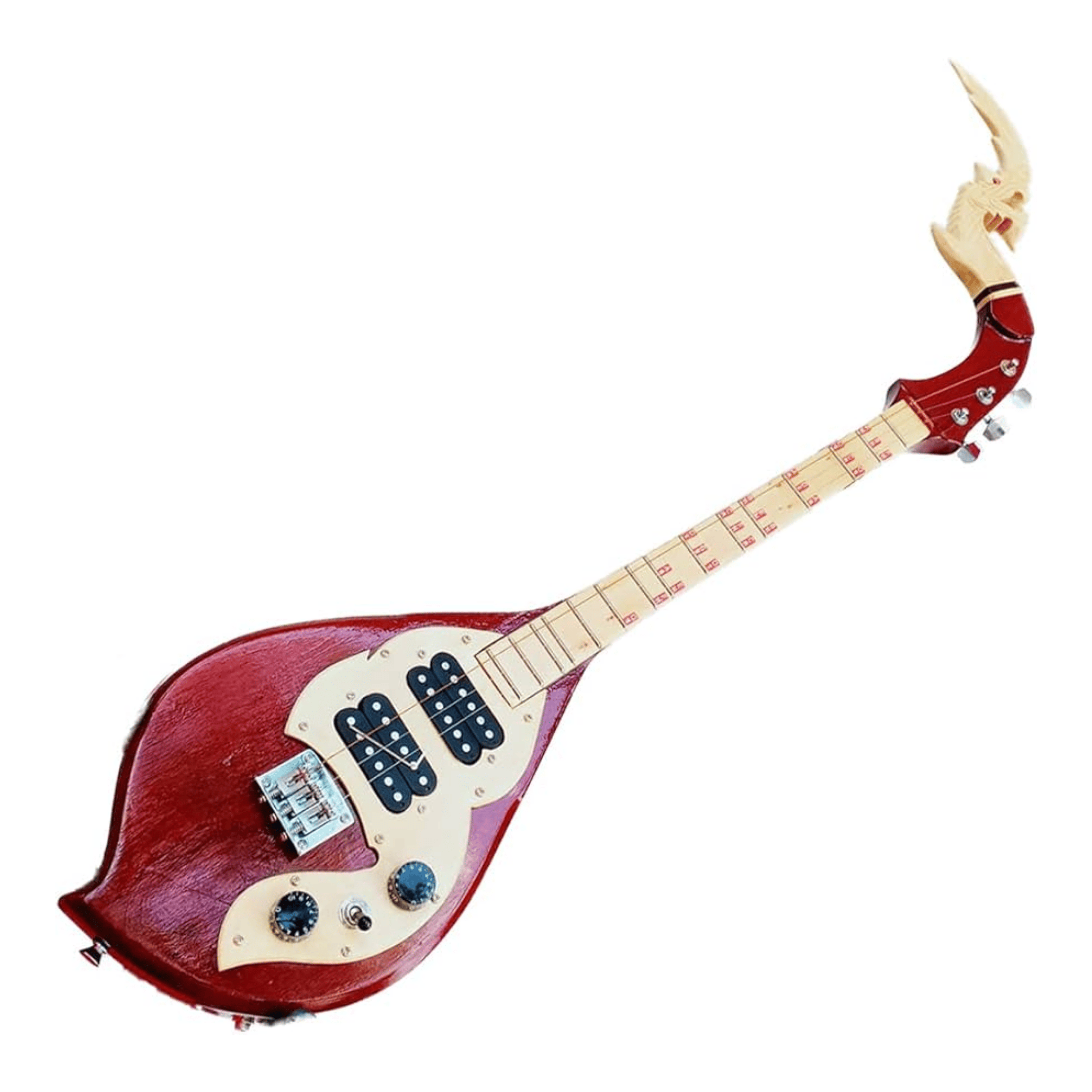
Khun Narin Electric Phin Band: “Their main core in making music is for people in their kampung to have fun.”
Just after their set in Joyland Festival Jakarta 2024, we had a quick chat with Khun Narin Electric Phin Band on topics like the molam sounds, the adapted traditional Thai music, to what he sees from his music.
Words by Whiteboard Journal
Words: Garrin Faturrahman
Photos: Joyland Festival
The time is ripe for cross-genre acts to take the stage and remind how much we’ve actually been missing out. Take for example: the Thai parade troupe/musical group that plays ethereal, pumping, and mesmerizing psychedelic/funk/rock with an edge of their local colors. They may sound like a high speed frantic chase through Mario Kart’s Rainbow Road, like slipping down a prismatic and hazy trip, but no matter how you see it, you can feel that they are happy just playing music the way they want to. It’s Khun Narin Electric Phin Band.
Having deep bonds with their local communities, Khun Narin (or Father Narin) extends the happiness and energy he’s received for his music all around the globe back to the people in his kampung, as Khun Narin Electric Phin Band serves as a platform for the youth to express their creative sides too. With the help of this year’s Lily Pad curator, White Shoes & The Couple Company, he’s bringing the group down to Jakarta for Joyland Festival Jakarta 2024 where we were all hypnotized by their sounds.
Just after their set, we had a quick chat with Khun Narin and the band members on topics like the molam sounds, the adapted traditional Thai music, to what he sees from his music, all with the help of their manager, Jibuki, which translated the words as we conversed.
I heard Thailand has an abundance of U.S. military surplus goods (primarily clothes) as well as cool Americana items. Thai seems to have a long history with American culture. Are there any musical influences from them that can be found in Khun Narin?
They take a lot of inspiration from American rock bands in the 80s, especially ‘Santana’. Because Khun Narin, the founder of the band, likes this kind of music. That’s why he introduced it into the more traditional music. That’s why he introduced it into traditional molam music. He just wanted to add something fun to the normal traditional music so that the music is suitable for enhancing the performance and entertaining the crowds in the gigs and traditional celebrations around his kampung.
I’d like to dive more into your tone and melodies. In blues, they have the blues scale, and there are also traditional ones like Japanese and their specific scales. In your molam music, what are the melodies called?
They call it the พิณประยุกต์ (phin prayukt). It means traditional phin band but applied or adapted.
Even in Thai, they have a different band name. They call it
ขุนนรินทร์ศิลป์พิณประยุกต์ (K̄hun nrinthr̒ ṣ̄ilp̒ phiṇ prayuk, or Khun Narin Silpa Phin Prayukt Band) and prayukt itself is a word that means ‘adapted’.
Can we still hear this genre today in Thailand?
So phin prayukt is something specially from their region. Phin prayukt itself is a modern musical ensemble rooted in the traditional Wong Phin band, where the phin—a traditional stringed instrument from Thailand’s Isan region—takes center stage. Over time, the ensemble has expanded to include instruments such as bass drums, bongo drums, cymbals, keyboards, and more.

A phin. (Source: Amazon)

An electric phin. (Source: Amazon)
By blending traditional melodies with contemporary popular songs and improvisation, phin prayukt creates a vibrant, dynamic sound that bridges cultural heritage and modernity. The Khun Narin Silpa Phin Prayukt Band is a group from Phetchabun province that exemplifies this unique musical style.
While phin prayukt showcases the evolution of traditional music, molam, another prominent Isan art form, continues to thrive across the region and beyond. Originating as a means of storytelling and entertainment, molam is performed during events such as funerals, village festivals, and harvest celebrations. Its rhythms and styles have evolved over time, giving rise to various subgenres and influencing modern ensembles like the Khun Narin Phin Prayukt Band. This fusion of tradition and innovation highlights the enduring cultural significance of music in Thailand’s northeastern and north-central regions.
There are bands like Khruangbin that seem to be influenced by tone, riffs, and licks like yours, as well as how people all around the globe are “vibing” with your sounds. How do you feel about being exposed to the world, outside of Thailand?
They feel positive about it. They just want people to continue this tradition. No matter who or where, it’s the music for the people because their main core in making music is for people in their kampung to have fun. So, music for them is for people to enjoy and have fun. They don’t mind if anyone’s doing it anywhere. Just do it—make people enjoy the music.
I read that your band also has a helping hand in the local youth. From what you give to your local communities, do you have a “grander” wish beyond where you live?
He founded this band a long time ago, more than 20 years ago. He’s been teaching all these kids in the kampung to play music and then like many generations come and they keep changing the members.

From left to right: Omo (bongo/percussions), Boss (bass), Fak (electric phin), Father Narin (cymbals), and Pond (drums). (Credits: Joyland Festival)
At the first time that he formed this band, he never thought of it to be big. It was just for enjoying the music and having fun in the kampung, teaching the kids in the kampung. When people start to acknowledge the music, he starts to think more. He wants to do something bigger from this kind of music that he plays.
With that said, Khun Narin seems to be more than just a band—somewhat of a parade troupe, even! If you were to introduce yourself to the masses, how would you describe Khun Narin Electric Phin Band?
It’s the music for everyone to enjoy.











